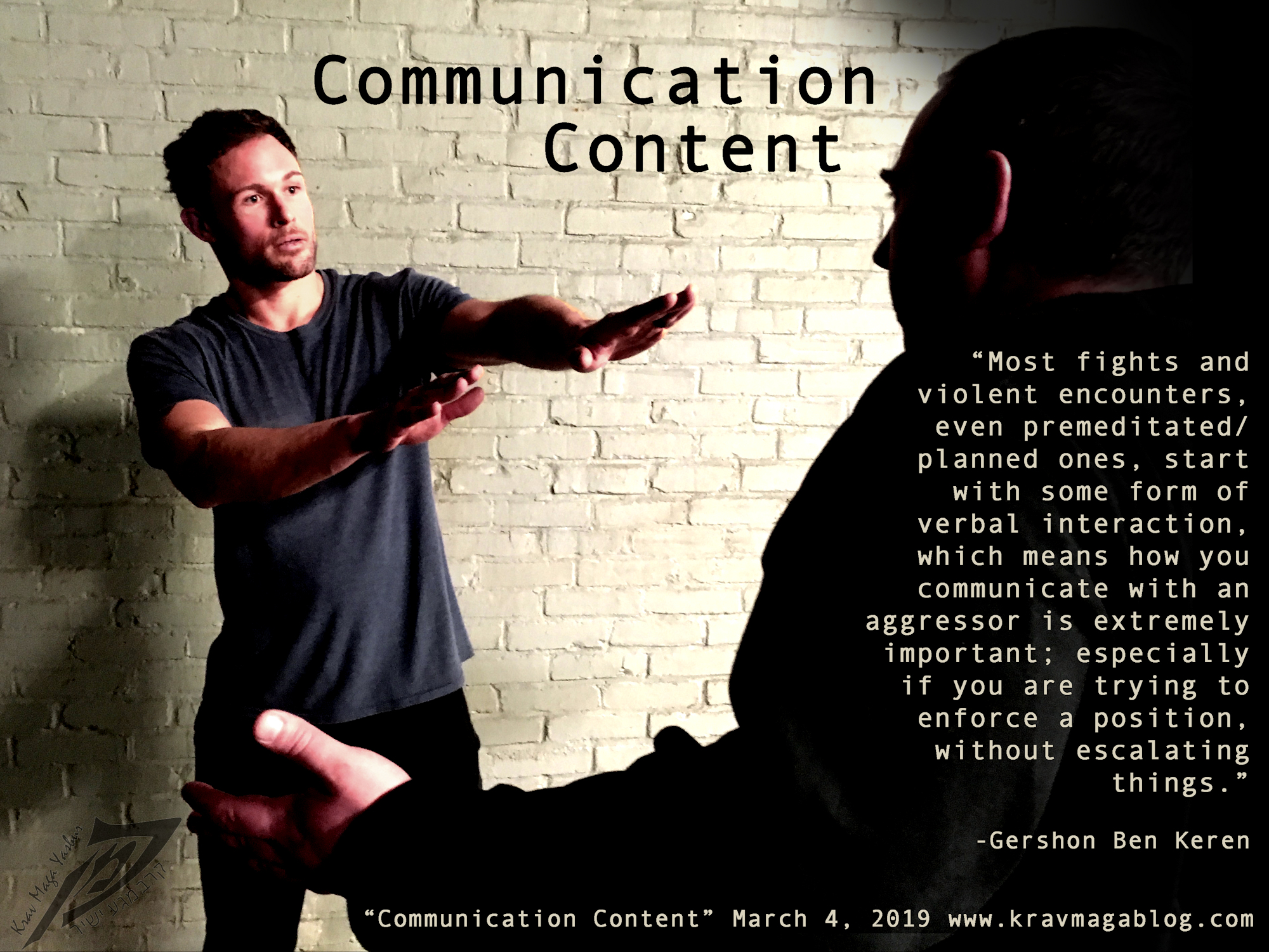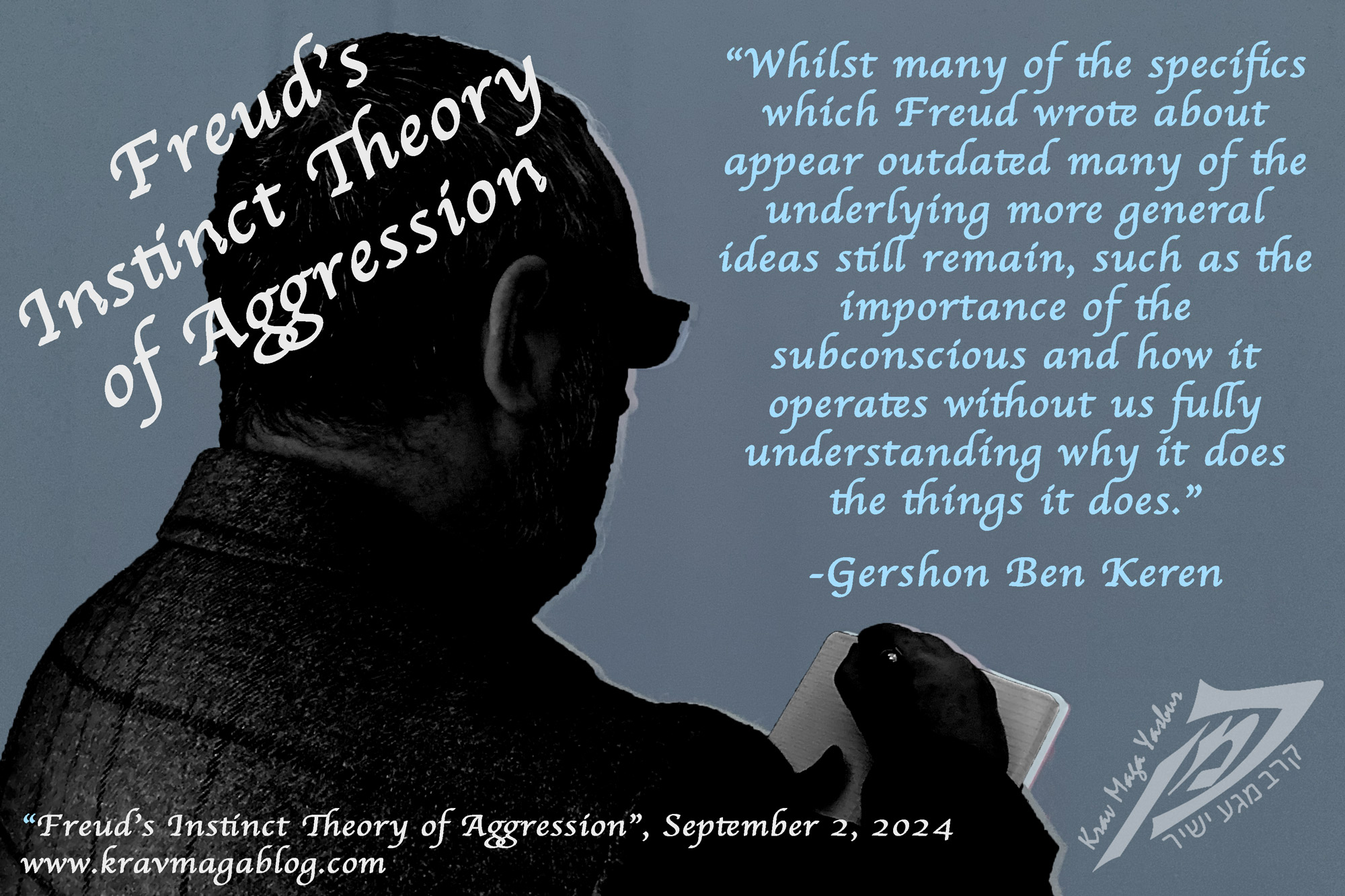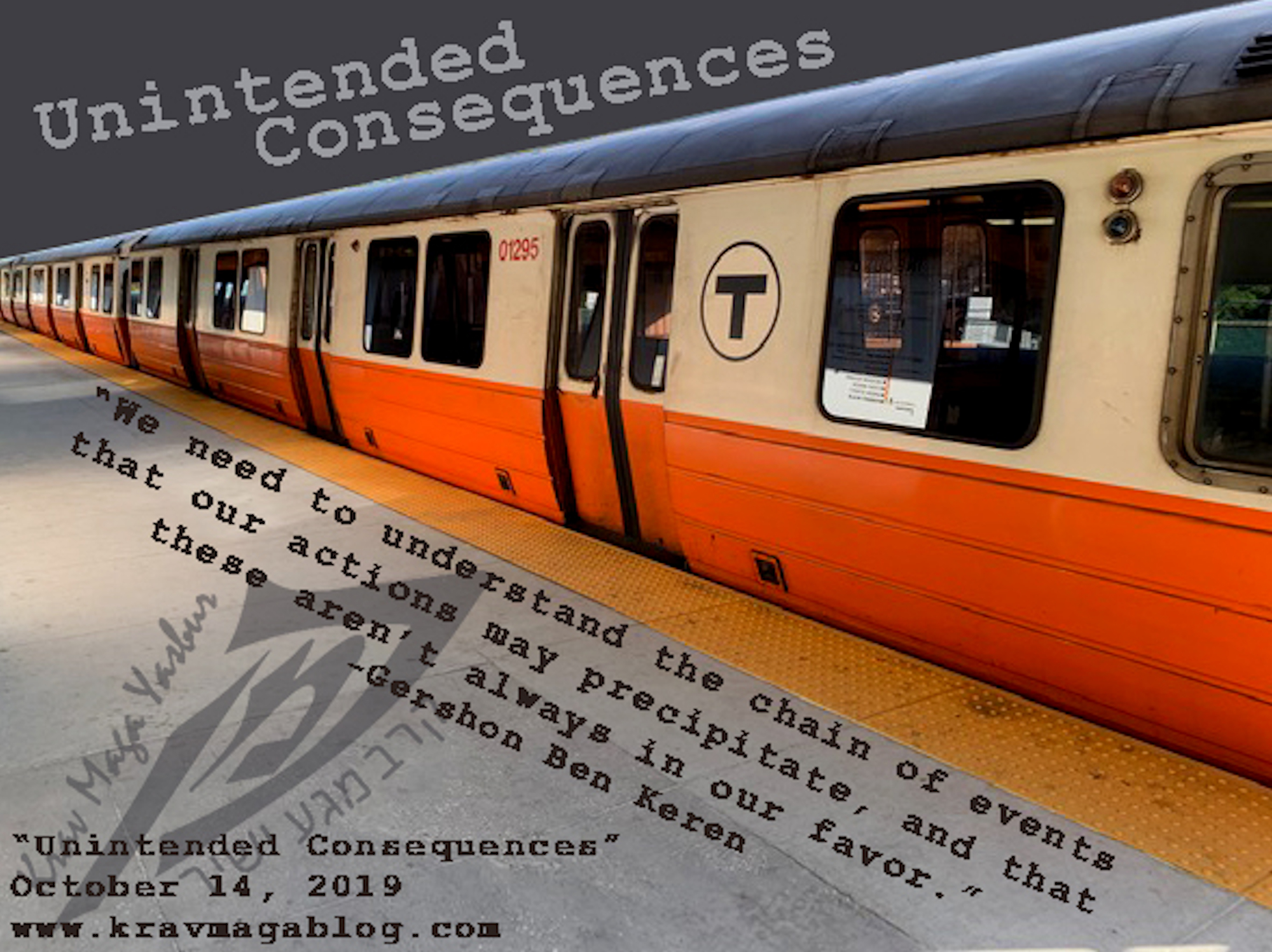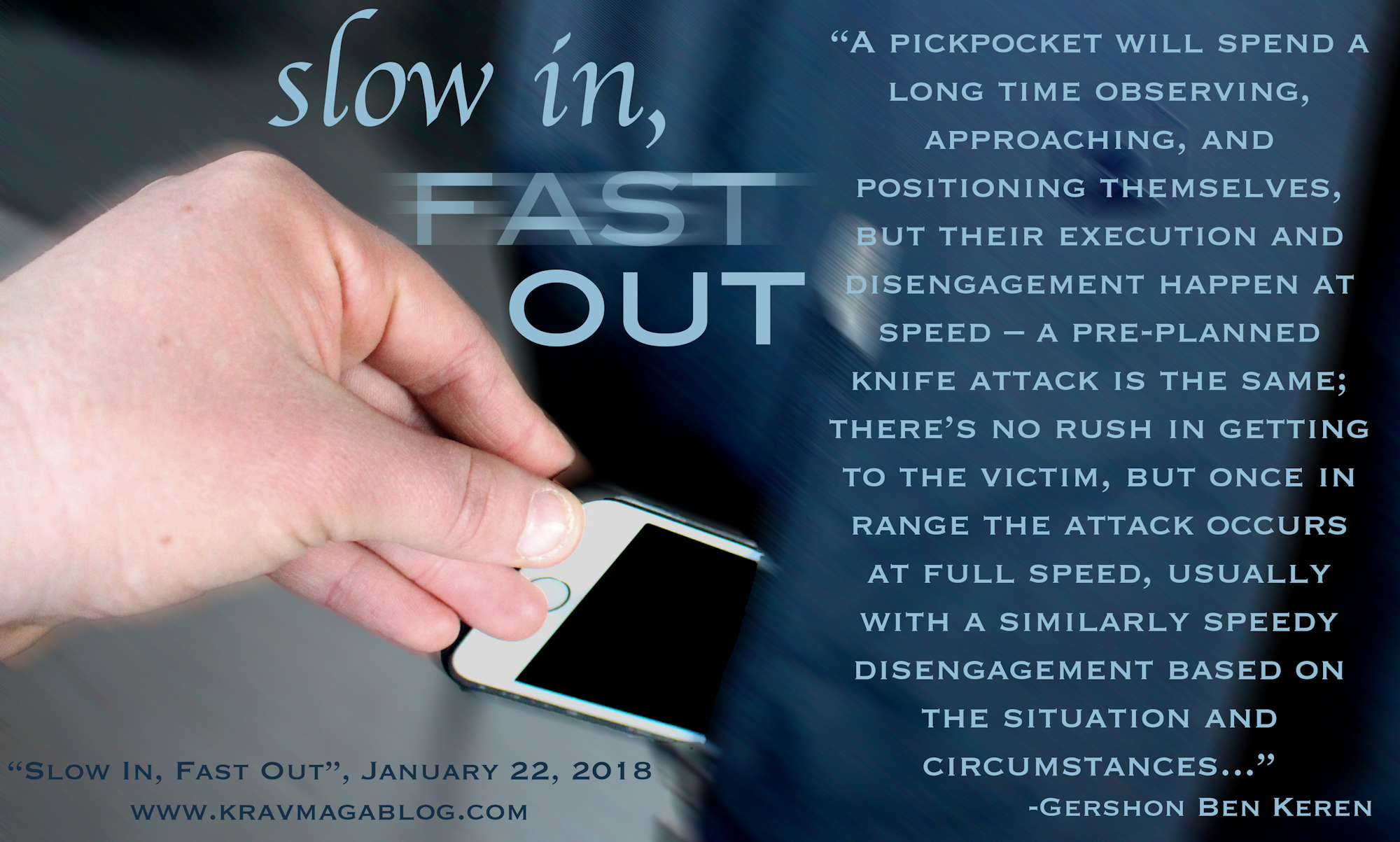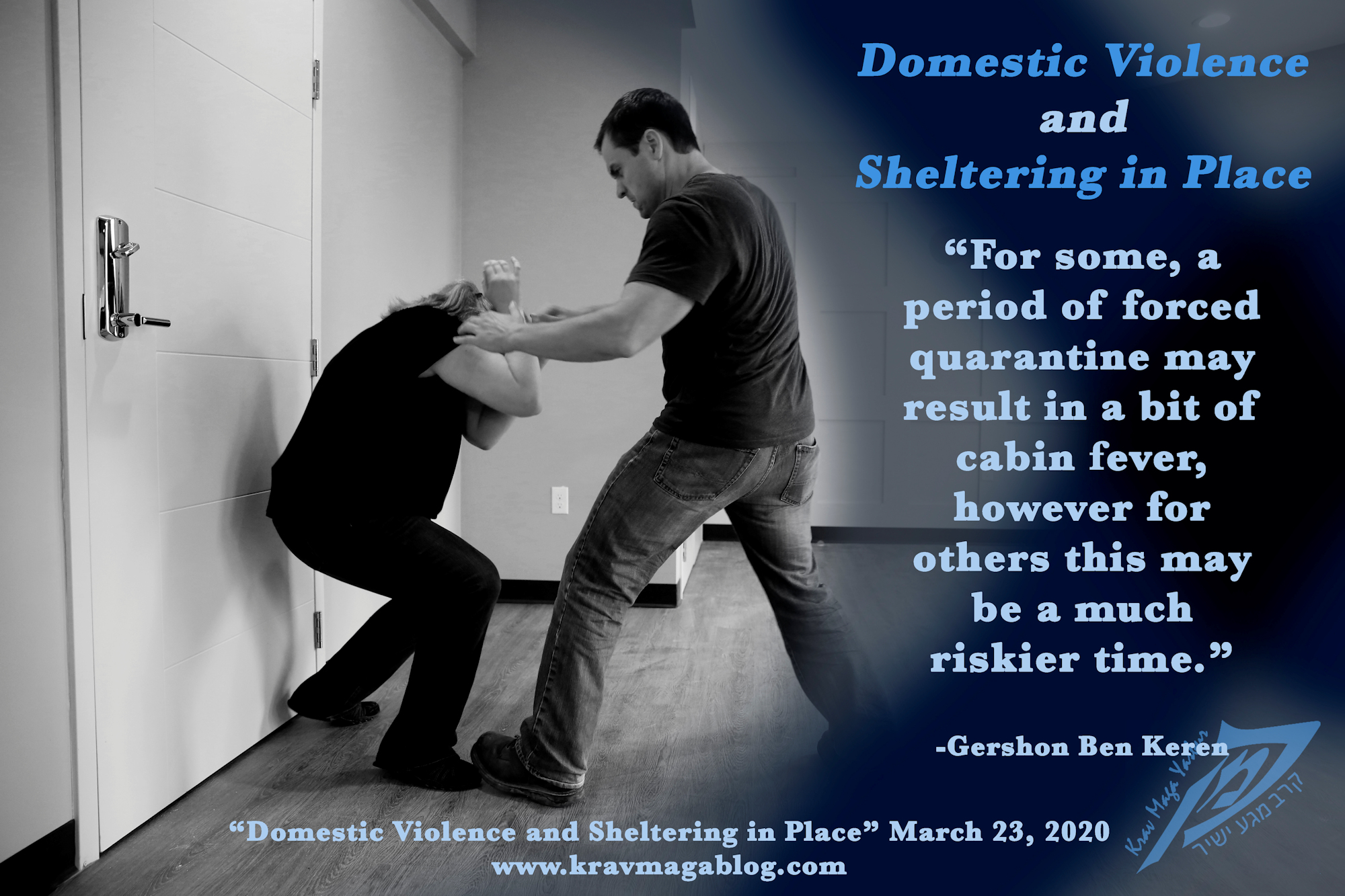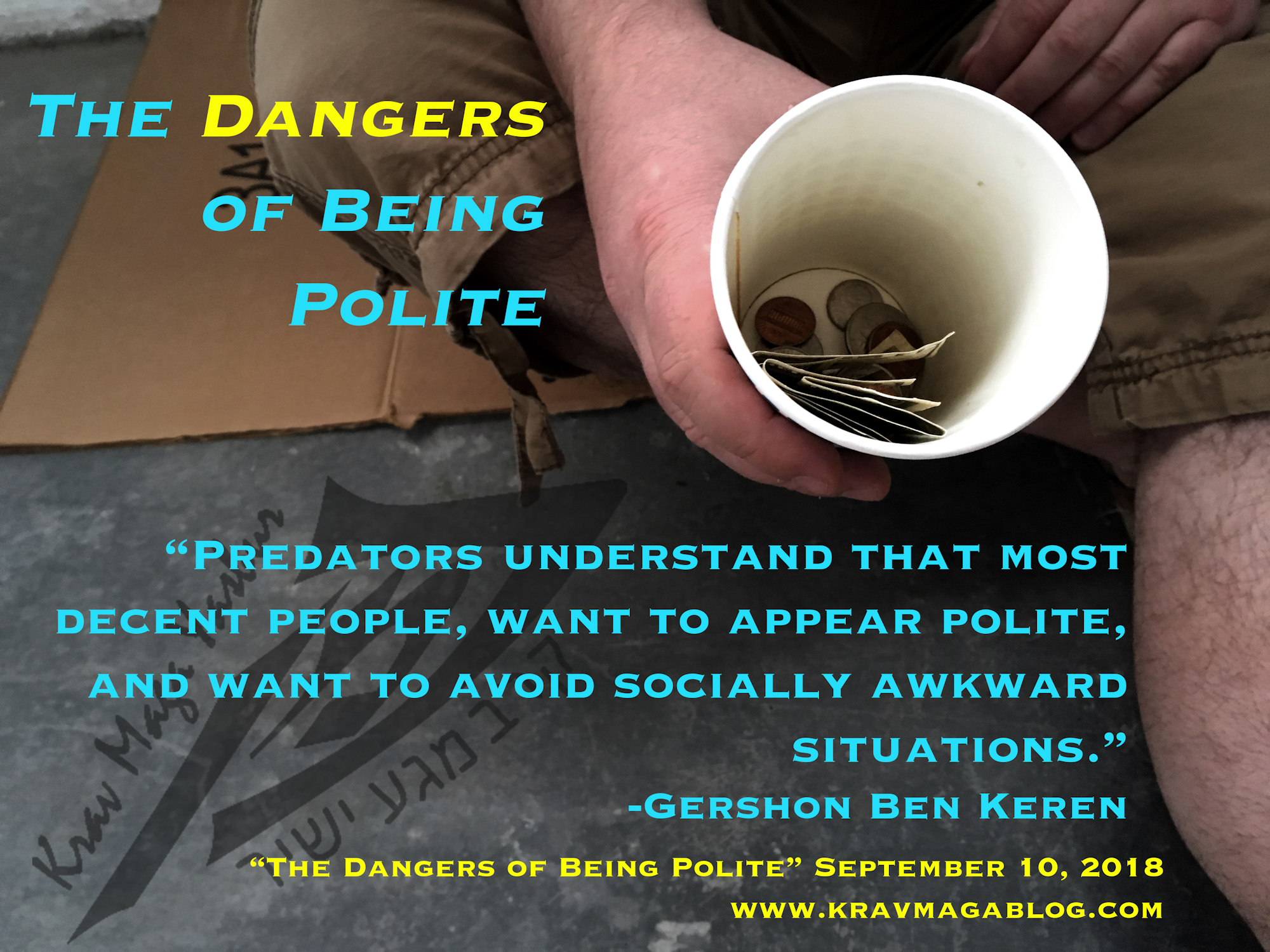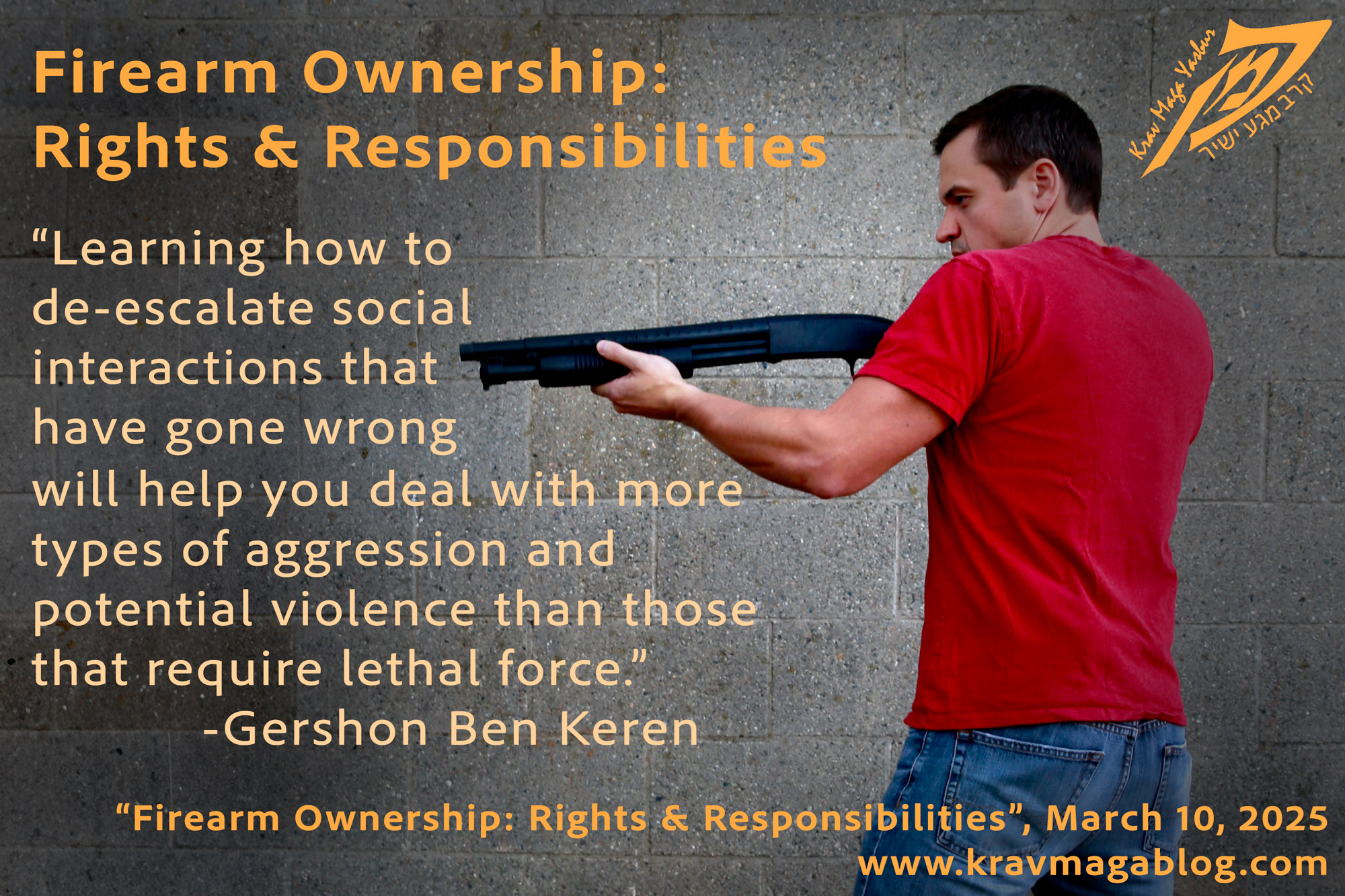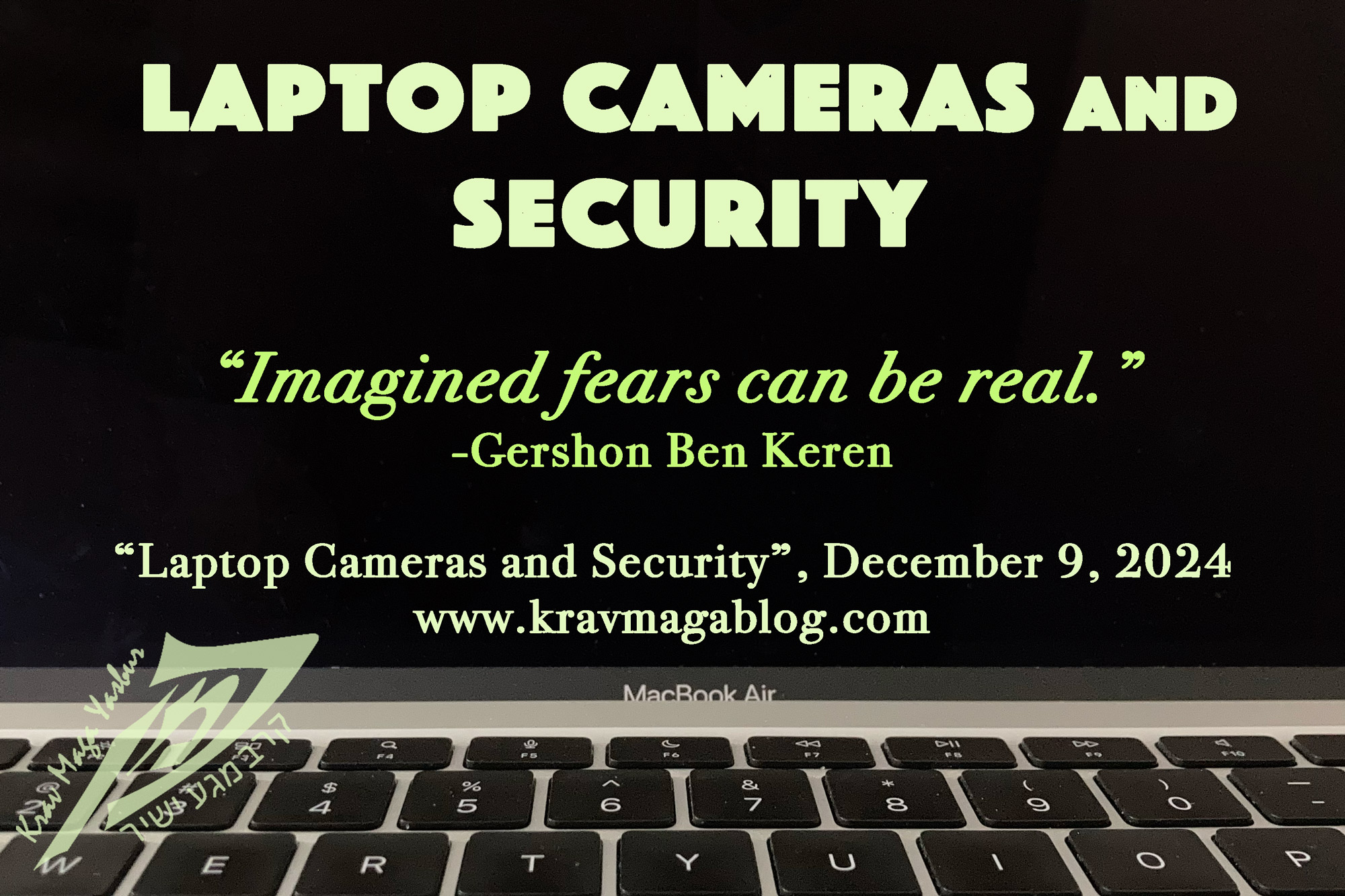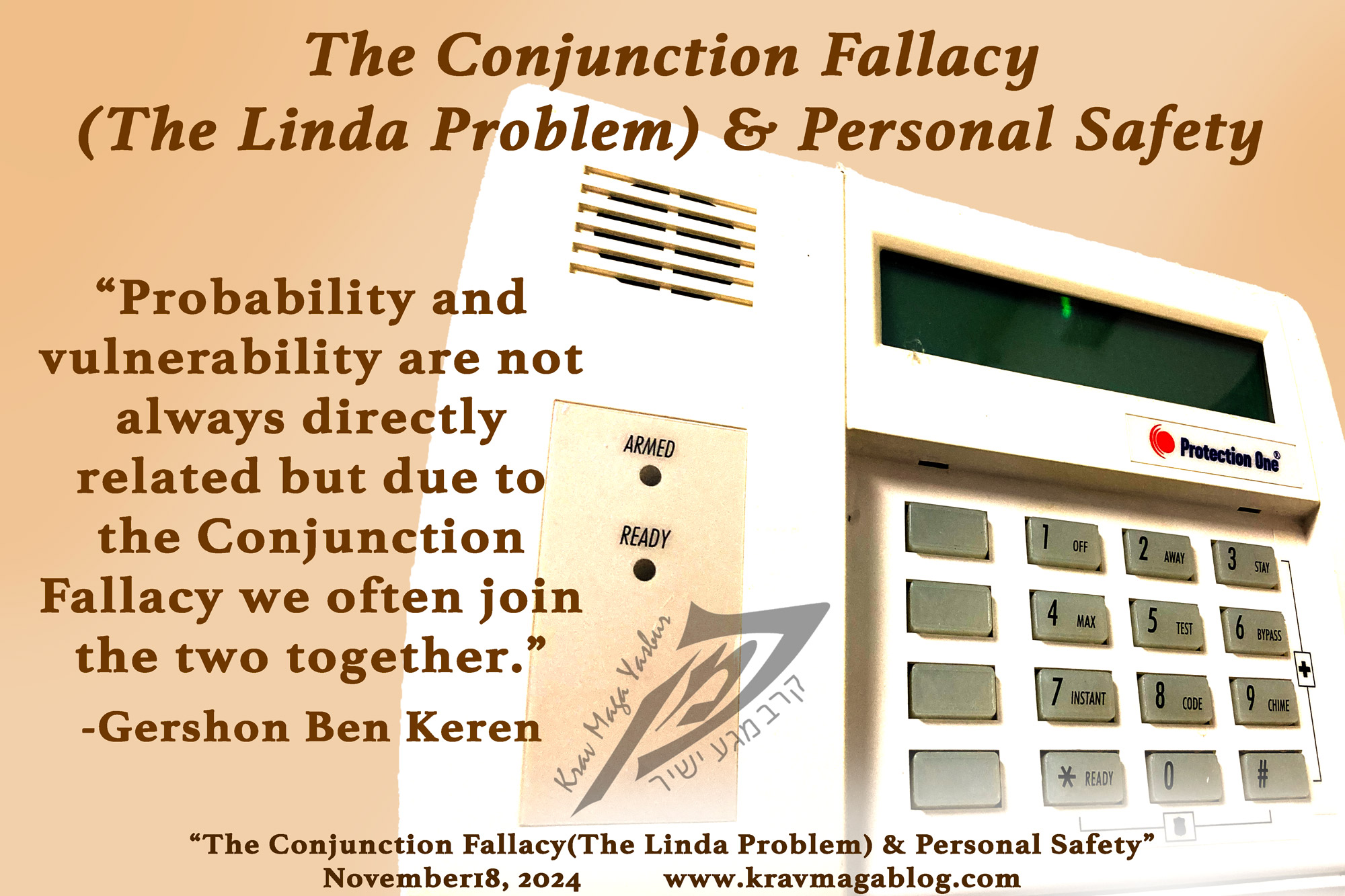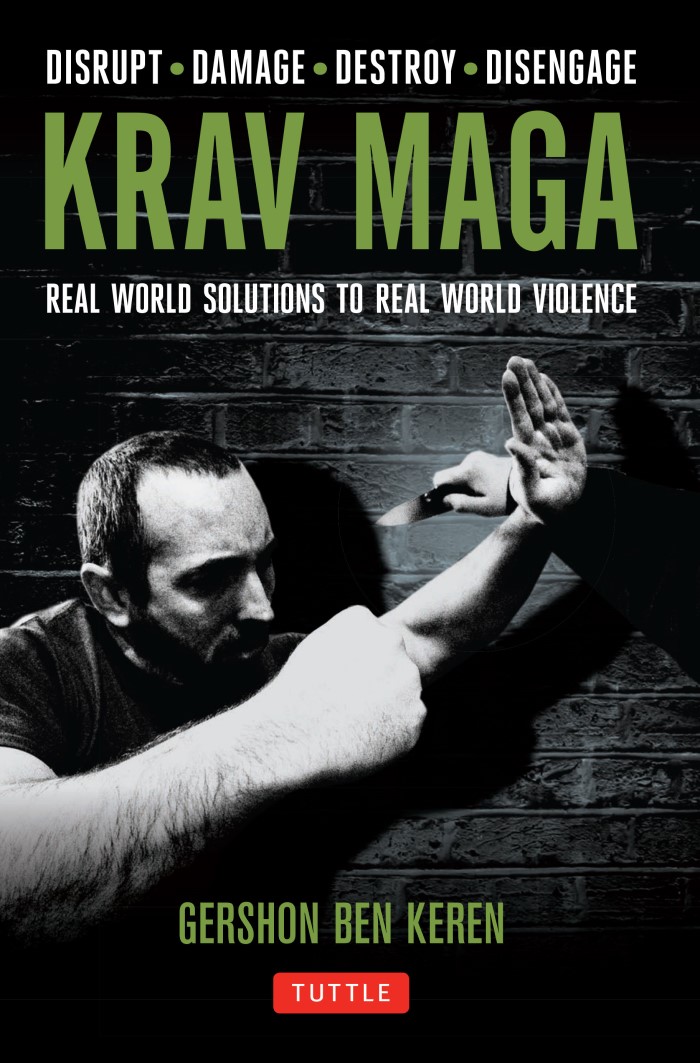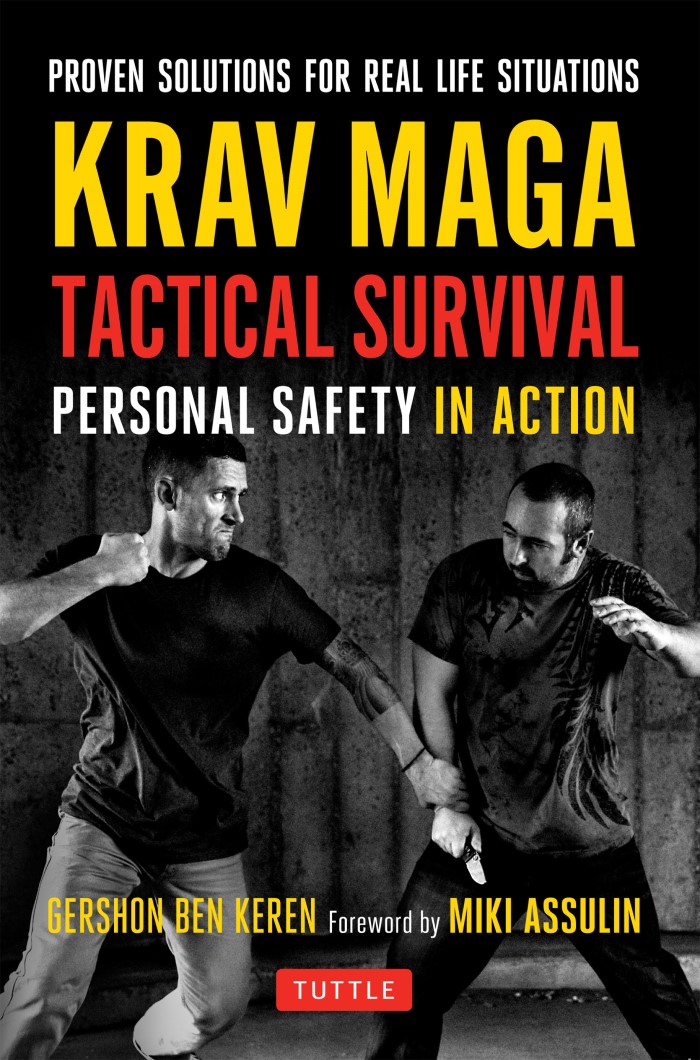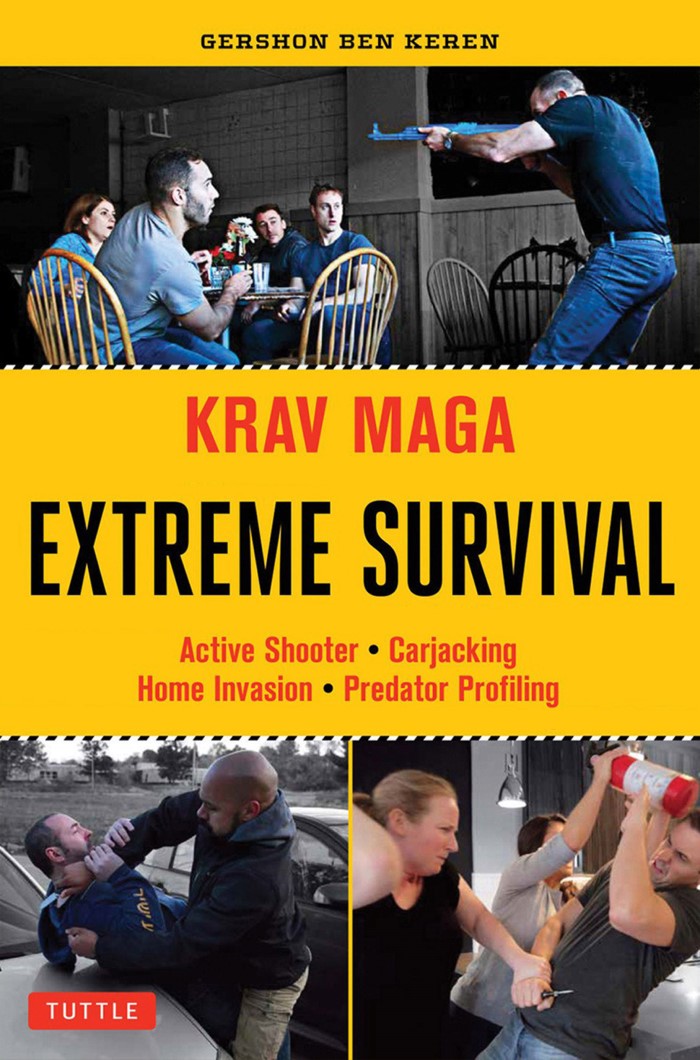The Dangers Of Being Polite, is an article written by Gershon Ben Keren, a 5th Degree Black Belt in Krav Maga, who teaches Krav Maga in Boston, MA. He has also authored three Amazon best-Selling Books on Krav Maga.
I know a lot of people who have given pan-handlers who hassle them money, so that they can avoid an awkward situation; if somebody tells you that they need the money to by a train/bus ticket so that they can visit a sick or dying relative (I’ve lost track of the times I’ve heard this story both in the US and the UK), by not giving them something, you would either be calling them a liar, letting them know you don’t care enough about their situation to help them, or pretending that you don’t have any money on you (which may also be true) etc. None of these outcomes, puts you in a good light – if you care what other people think of you. Predators understand that most decent people, want to appear polite, and want to avoid socially awkward situations. I’ve also seen “professionals” fall foul of not wanting to make a scene, where the appropriate action was either to engage, or start laying down some pretty firm boundaries with the person they were dealing with e.g. stepping back, ordering the other person to step back, and show them their hands etc. Often, when dealing with potentially dangerous situations, we will be put in situations which are socially awkward, in which politeness needs to be put aside; and my belief is that conditioning for this needs to start at a young age.
Sometimes we give out contradictory messages to our kids; as a parent I’m aware that I’ve done this on occasions. We teach our children at a young age not to talk to strangers, and then make them do it, when we are present – because we want them to be polite. Crossing guards, cashiers in shops, etc., will often ask our kids personal information, based on conversations we are having with them, and we will tell them to answer the “nice” man or lady, etc., because we want them to be polite. However, we should understand that in doing this, we may be creating socially awkward situations for our child to deal with a later date. If during a conversation with a school crossing guard, we make our child tell them something, because we want them to be polite – and then tell them that it was okay to talk to them because we were there – on a later occasion when they are a bit older and we are not there, is there an implied obligation to talk to that individual? Have we tacitly informed them that school crossing guards are “safe” strangers? Don’t get me wrong, I’m not saying that all school crossing guards are pedophiles out to groom our kids, I’m merely illustrating how a desire for our kids to act and be seen as polite – and friendly (which may reduce our own awkwardness in a situation) – may send out a mixed message to our children e.g. when a stranger tries to engage our children in conversation, might it be better for us to instruct that person, that we are teaching them not to engage in conversation with people that they don’t know, and that they are not refusing to answer out of impoliteness, etc. Saying this in front of our child will teach them that the awkwardness of the situation is not to be avoided at all costs, and that their safety comes first. This is a lesson that will educate them far beyond this one incident.
When teaching both adults and children I extend the definition of stranger, not to be someone who you don’t know, but someone (known or unknown), who you don’t know how they’ll act and behave in a particular situation. Often, we think we know someone because we’ve known them for a long time e.g. we may have worked with them for a number of years — however if we’ve never seen them outside of the workplace, we really only know how they’ll act and behave in this setting – with a couple of drinks in them, in a social setting, they may be a completely different person. Unfortunately, we tend to let our guard down with people we feel we are familiar with. One of the scenarios I preset when teaching our women’s self-defense program, is that of a partner’s best friend turning up at the house, at a time when he knows his friend is out, and the partner is alone; with some story – similar to that of the pan-handlers – as to why he needs to come in, i.e. borrowing a book, a set of tools, etc. that was meant to have been left out for him. It’s a socially awkward situation: the partner has met and spent time with him, when other people were present, but has never spent time alone with him. In reality, there may be no nefarious purpose, however at the same time there might be, and this is always the issue when considering personal safety i.e. should she let him in or not, etc. If she does, she creates a potential risk, if she doesn’t, she appears impolite, unhelpful, paranoid, unsympathetic, etc. and risks having this be how she is known and talked about in their circle of friends. It’s these types of socially awkward situations that predators use to gain access to us. There are of course other strategies that she could employ in such a situation, such as letting him in to get what he’s come for, whilst she goes out on an “errand”, etc. Whilst we want to be nice and polite, there are times where it could be our undoing.
Predators are skilled at finding the gaps in our boundaries, and exploiting the fact that we often don’t believe violence will happen to us – because historically, maybe it hasn’t e.g. there have been times we’ve let people into our house who we don’t really know, and perhaps nothing happened. We’ve all had the sensation that someone was following us, without any negative outcomes, etc. Oftentimes, we haven’t called people, actions or behaviors out, that could contain harmful intent, because it would be impolite and socially awkward to do so, and most times, nothing bad has happened; and nothing bad will happen until it does – and at the point, we will probably regret that we didn’t. I value politeness, but I also recognize how there may be those amongst us, who exploit it for their own purposes.
0 COMMENTS